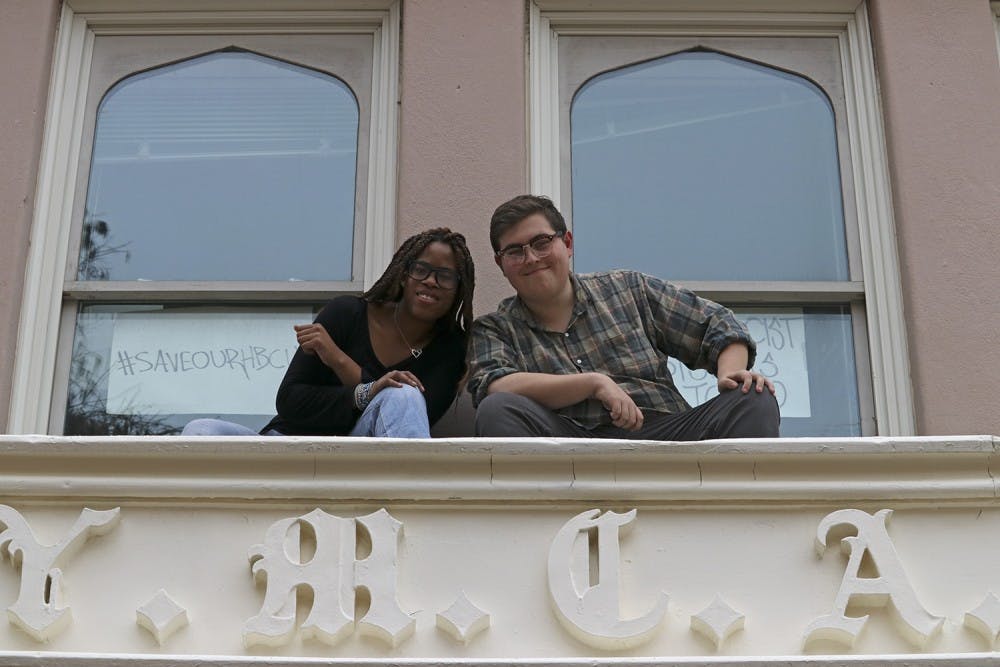The Campus Y, located at the north end of Polk Place, is more than the home to a great cup of coffee at In the Meantime — it’s also the home to more than 30 clubs that advocate for solutions to social injustices. Here’s our guide to all 30, organized by broader mission and in alphabetical order.
Advocacy
- Carolina Advocating for Gender Equality (CAGE): CAGE aims to stop gender bias by engaging all genders in the UNC and local community.
- Coalition for Human Rights (CHR): CHR addresses domestic and international human rights issues through teach-ins and opportunities for grassroots activism.
- Criminal Justice Awareness and Action (CJAA): CJAA focuses on issues facing the criminal justice system and partners with organizations such as Durham County Youth Home.
- Student Environmental Action Coalition (SEAC): SEAC defends social justice through environmental initiatives by partnering with groups such as Rogers Road, which works to maintain adequate public health standards for water and sewer infrastructure.
- Students United for Immigrant Equality (SUIE): SUIE brings attention to immigrant issues and focuses on equality for all, regardless of documentation status.
Community Inclusion
- Best Buddies: Best Buddies partners UNC students with local community members that have intellectual or emotional disabilities based on shared interests. These buddies hang out several times a month, spending time together one-on-one and at large club gatherings.
- Build the Hill: Formerly known as the Carolina Microfinance Initiative, Build the Hill provides loans and credit building services to local small businesses that don’t have the financial means to access traditional banks.
- Enrich ELL: Enrich ELL teaches English to adult learners, while also providing childcare, mentoring and tutoring to their children during classes.
- Hope Gardens: Hope Gardens encompasses a 14-acre green-space on Homestead Road that employs homeless individuals and provides cooking classes focusing on the garden’s produce, as well as providing free meals to participants.
- Linking Immigrants to New Communities (LINC): LINC provides resources for recent immigrants through student interaction, connection to resources and awareness efforts on- and off-campus.
- Youth for Elderly Services (YES): Members of YES provide companionship for elderly community members by volunteering.
Education and Youth Development
- Art & Life: The Art & Life club offers an afterschool arts program for local youth, which UNC students plan and teach.
- Big Buddy: Big Buddy pairs UNC students with “at risk” 6-year-old to 14-year-old children in Chapel Hill and Carrboro. In the program, which is affiliated with Big Brothers Big Sisters of America, volunteers serve as mentors and role models.
- Carolina Kickoff: CK is a three-day introduction to UNC for 175 incoming students. During the social justice-oriented camp, students listen to speakers like the Chancellor and department heads.
- Catalyst Conference: The conference brings 100 high schoolers to campus for a weekend to talk about social justice.
- Helping Youth by Providing Enrichment: Students volunteering for HYPE tutor and mentor children at underserved community centers in the area.
- Project Literacy: The organization partners with organizations that combat illiteracy both locally and nationally.
- Technology without Borders: TWB strives to provide technical education and access to technology for underprivileged.
Global
- A Drink for Tomorrow: ADFT seeks to create long-term, effective and community-driven safe water for all.
- Advocates for Grassroots Development in Uganda: AGRADU supports grassroots efforts for economic development and community growth in Uganda.
- Carolina for Amani: As the local branch of non-profit The Amani Children’s Foundation, Carolina for Amani works to connect Kenyan and American communities.
- Nourish-UNC: The group works with local organizations to run small businesses that give profits to sustainable development projects.
- World Micro Market: The club hosts a weekly forum on international awareness and supports Global Hands, an organization that encourages economic empowerment.




